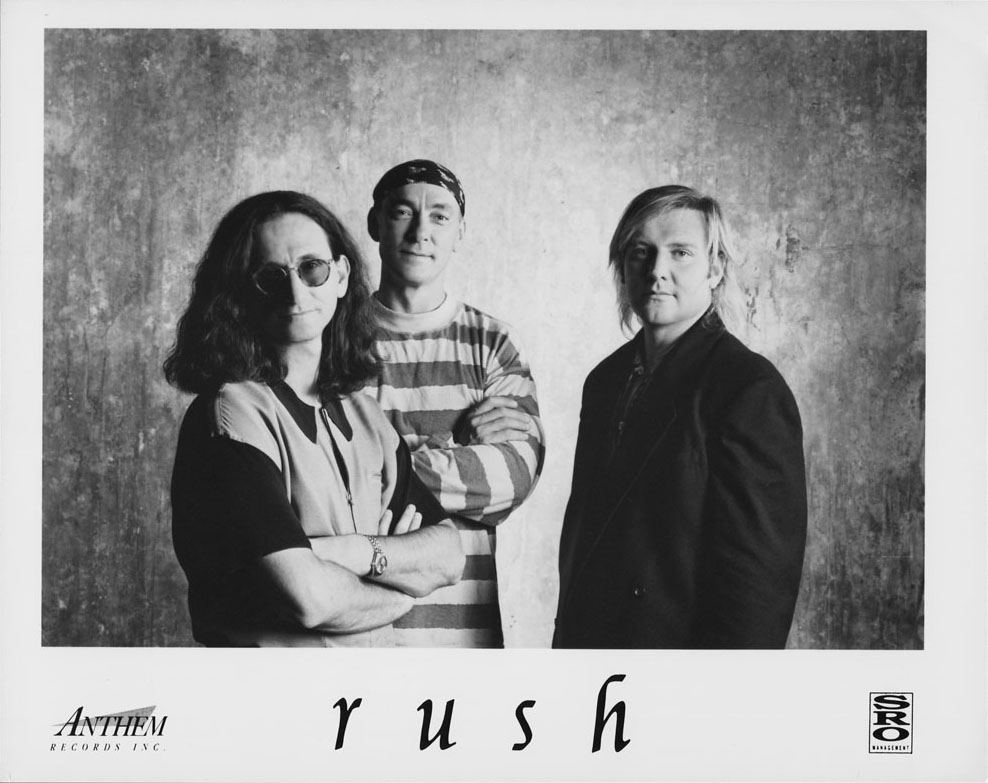Rush: Challenging The Mind As Rock's Senior Statesmen
By Steve Morse, Boston Globe, October 19, 1993, transcribed by pwrwindows

Canadian power-trio Rush scraped for years to get to the top of the hard-rock field. Now that the group is there, Rush deserves credit for not slipping into the arena-rock smugness of many of their peers. If anything, the band appears increasingly comfortable with the role of senior statesmen: Witness the new album, "Counterparts," due in stores today.
Unlike many hard-rockers who are still trying to satisfy their egos and libidos, Rush writes new songs that attack racism and sexism ("Alien Shore"), sympathize with a friend who died of AIDS ("Nobody's Hero"), defend a woman concerned with male physical abuse ("Cold Fire") and warn about putting up with corporate and societal lies ("Stick It Out").
Singer Geddy Lee, once a shrieky yowler who's now among the most improved vocalists in rock, offers this statesmanlike observation in the guitar-driven "Cut to the Chase":
I'm old enough not to care too much
About what you think of me
But I'm young enough to remember the future
And the way things ought to be
Amazingly enough, Rush will celebrate its 20th anniversary next year. A tour is planned to start in January (no word yet on a local date), but, for the moment, this album will have to suffice. And suffice it does with a jarringly virtuosic, socially conscious batch of songs that should heighten a respect cemented in 1991 with the disc "Roll the Bones," followed by a sold-out Worcester Centrum show.
Rush may be too preachy for some listeners, and too unmelodic for others (guitarist Alex Lifeson can still play with dental-drill relentlessness), but this album marks a major step forward. The former Rush sin of bombast creeps into the new track "The Speed of Love" ("nothing changes faster than the speed of love," Lee sings), but most songs challenge the mind, even as they're ripping through the brain with monster guitar riffs and the big-beat, arena-size drum sounds of Neil Peart.
Befitting Rush's role as cerebral rock philosophers, the song "Animate" pays tribute to psychologist Carl Jung, notably Jung's thesis of merging the anima (feminine side) and animus (masculine side). How many hard-rock bands delve this deep? And a bright overlay of optimism coats the last track, "Everyday Glory": "If the future's looking dark, we're the ones who have to shine." The band keeps that promise here.